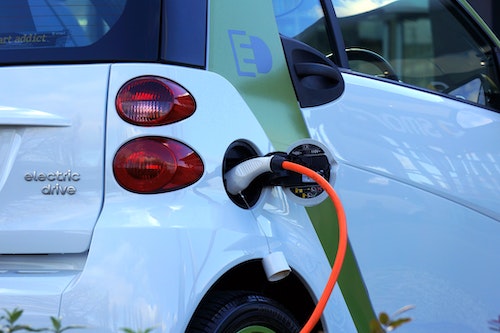The electrification of transportation refers to the increasing use of electric power in vehicles as an alternative to traditional fossil fuels. Electric vehicles (EVs), including cars, buses, and trucks, are powered by electricity stored in batteries, which can be charged from a variety of sources, including the electricity grid, solar panels, and wind turbines. The transition to electric vehicles has the potential to greatly reduce pollution, lower transportation costs, and improve energy security.
One of the main benefits of electric vehicles is that they produce zero emissions at the tailpipe, which greatly reduces air pollution and improves air quality. This is particularly important for cities, where air pollution is a major problem, and can lead to better public health. Additionally, transportation sector is responsible for a large portion of greenhouse gas emissions, and switching to electric vehicles can help to mitigate the effects of climate change.
Another advantage of electric vehicles is that they can be more cost-effective over their lifetime compared to traditional gas vehicles. Electric vehicles have fewer moving parts and require less maintenance, which can lead to lower costs over time. Additionally, the cost of electricity to charge an electric vehicle is often less than the cost of gasoline or diesel, which can lead to lower fuel costs.
The electrification of transportation can also have benefits on a national level by improving energy security. By reducing dependence on fossil fuels and increasing the use of domestic electricity sources, the country can become less reliant on foreign oil and gas. This can help to stabilize energy prices and reduce the risks associated with relying on foreign sources of energy.
Despite the many benefits of electric vehicles, there are also some challenges that must be addressed before widespread adoption can occur. One of the main challenges is the lack of charging infrastructure, particularly in rural areas or places with low population density. Another challenge is the limited driving range of electric vehicles, which can make them less convenient for long distance travel. Additionally, the cost of electric vehicles can still be higher than traditional gasoline vehicles, although the cost gap is reducing over time.
In conclusion, the electrification of transportation is a rapidly growing field that has the potential to greatly reduce pollution, lower transportation costs, and improve energy security. While there are still some challenges to be addressed, electric vehicles have the potential to greatly benefit society and change the way we think about transportation. With ongoing advancements in technology and increasing public awareness, the adoption of electric vehicles is likely to continue to grow in the future.



